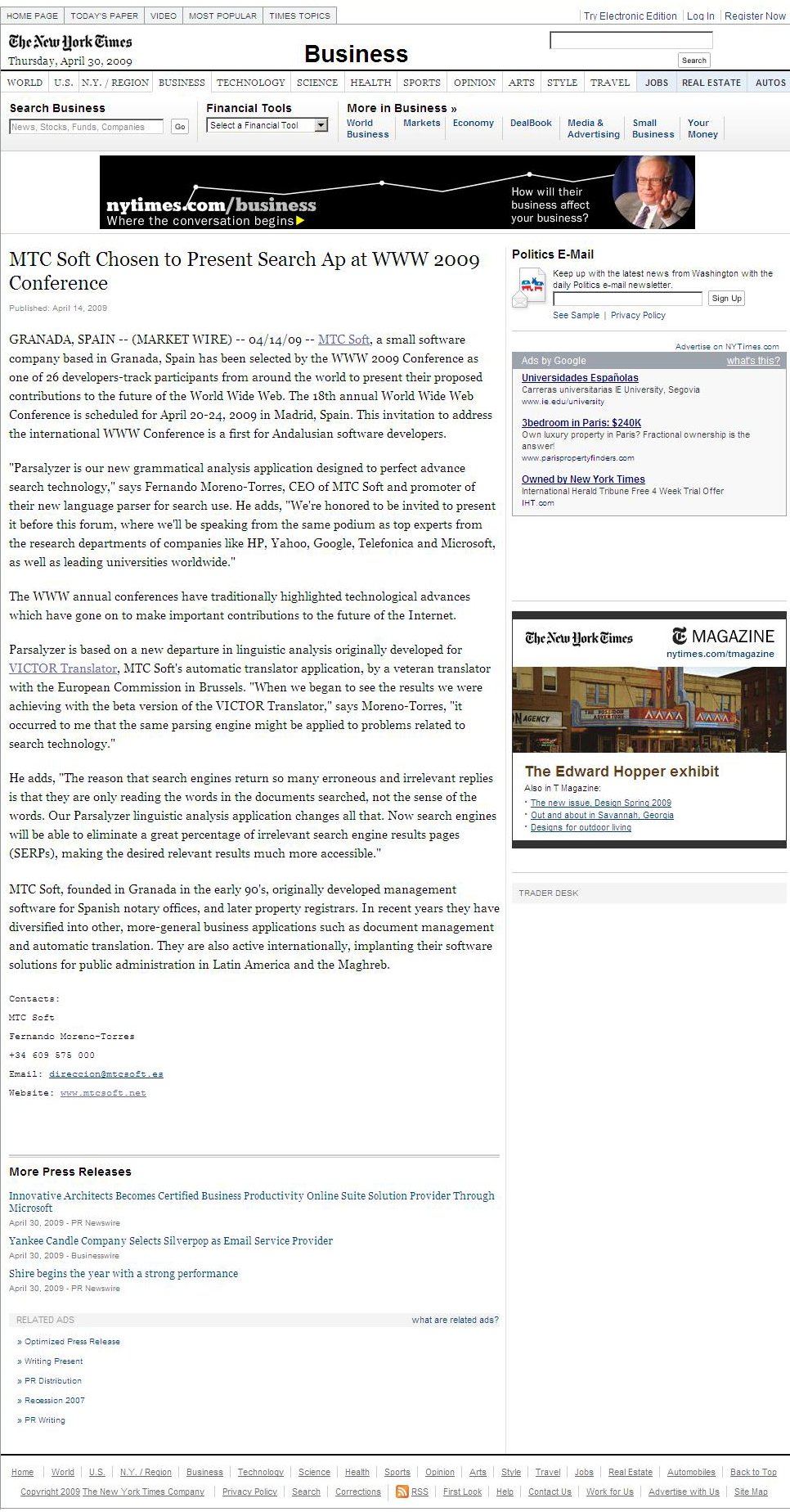LinguaBuzz is a by-product of VICTOR Translator. It is based on 8-year experience working in natural language processing.
At last you can see what people say on the Internet
To search “mentions” of a brand or a product in social networks, blogs, forums, etc. – definitely, on the Internet – there is not any other option than using “keywords”, as we do every day to look for something in our usual web search engine . The problem is that these searches return us many irrelevant or incorrect results.
It is inevitable: the language is ambiguous, inaccurate, polysemic. Most words mean several different things and often appear in sentences that have nothing to do with what is really looking for. Current tools for analysis of opinion can not solve this problem. They are very inaccurate because they do not understand the meaning of words.
At this point LinguaBuzz and its linguistic analysis appear on stage.
LinguaBuzz is a byproduct of VICTOR Translator – an automatic translation machine– that was developed over eight years. It analyzes and labels each word of each sentence and assigns the grammatical functions (noun, verb, adjective, etc.) to each word. Also, the syntactic relations between them, as for example, what is the subject of the sentence, the direct object… or what adjective qualifies what noun.
After analyzing and tagging all mentions located – based on the “keywords” included in these mentions – Linguabuzz tells you what mentions talk about “something” that interests you, discarding “trash” or noise that is irrelevant.
This linguistic analysis is what makes LinguaBuzz better than other similar products.
LinguaBuzz knows about what people say and not just what words are used. This is the huge difference.
After “filtering” the results using the linguistic information, LinguaBuzz displays the results in an easy-to-use and clear graphic format.
Furthermore, when LinguaBuzz analyzes each sentence, it extracts automatically “topics” and the “Sentiment” from the opinions – this sentiment could be positive, negative or neutral. This information is incorporated into the charts that show not only who gives the mention, what it is about, but also whether the mention is positive or negative.
Besides that, LinguaBuzz reaches a very high percentage of accuracy. Now it is possible to use this data to draw conclusions and make decisions about the marketing strategy.
What is LinguaBuzz used for?
LinguaBuzz’s mainly function is making complete and accurate market studies automatically using the mentions published on the Internet.
But there are many other ways to use these reports about products, brands or even persons.
- Analysis of products in relation to competitors.
– Search the most appropriate sites for marketing campaigns.
– Study of the impact of a marketing campaign (traditional or online media).
– Segmentation of advertising in social networks: users’ id in Facebook, Twitter, etc., who are more appropriate to offer certain products.
– Identification of trolls in social networks (people who only write negative mentions in general or about a particular brand).
There are many different ways to take advantage of the huge amount of information generated in LinguaBuzz’s reports. Tell us your needs and we will make our best to satisfy them.
More information in http://www.linguabuzz.com




